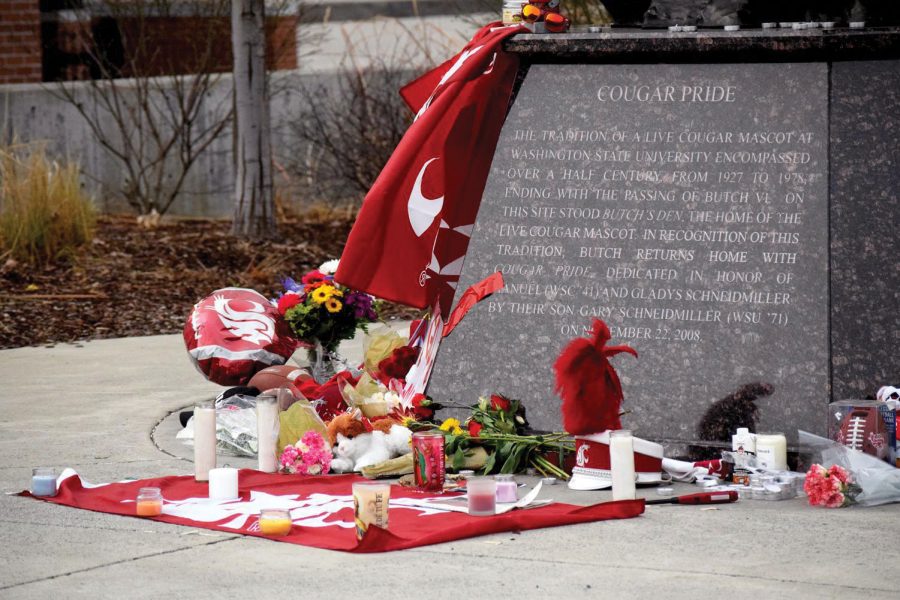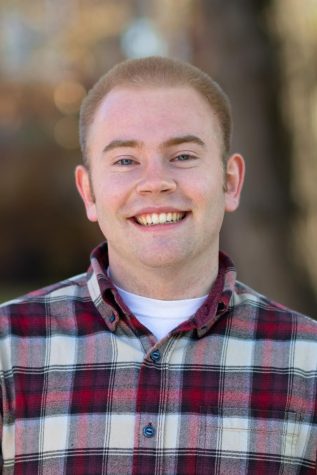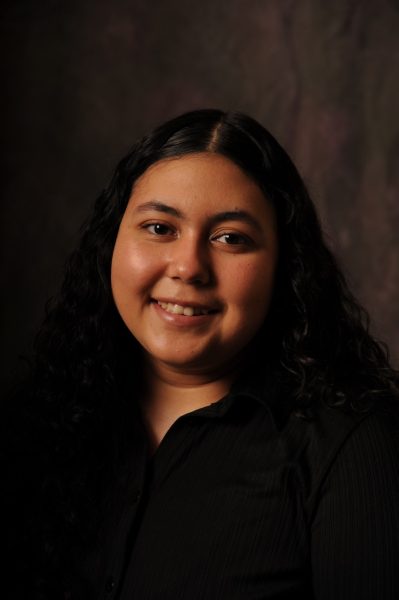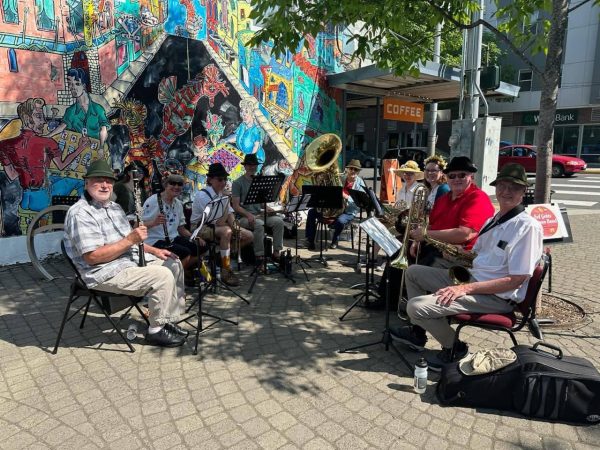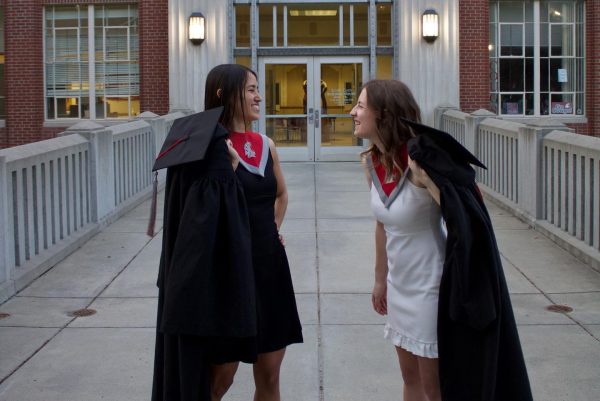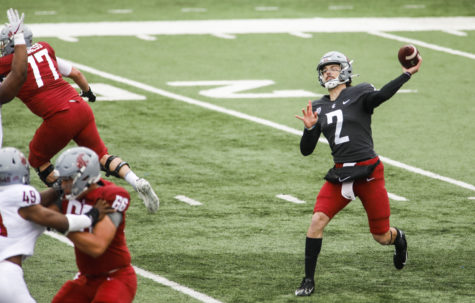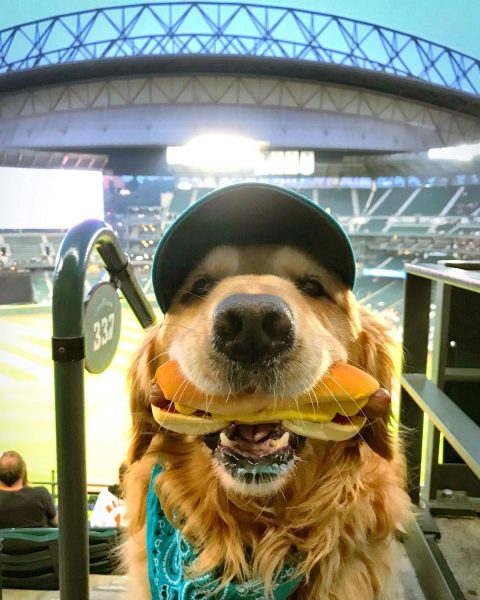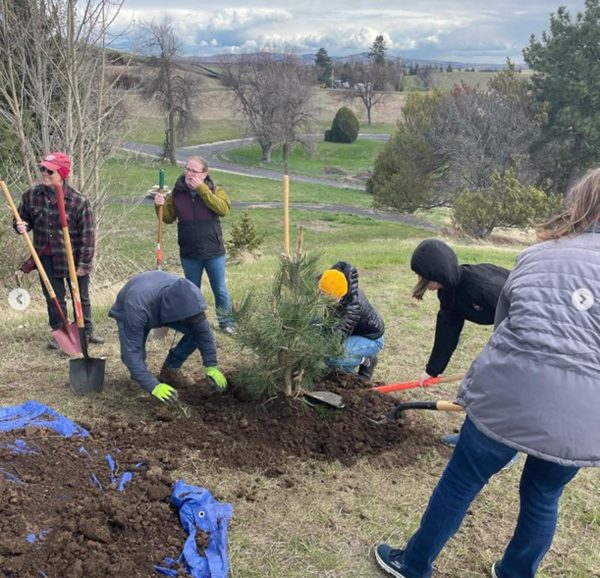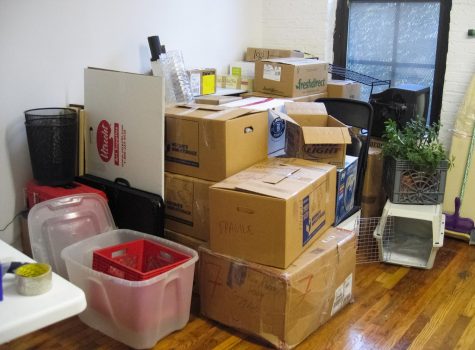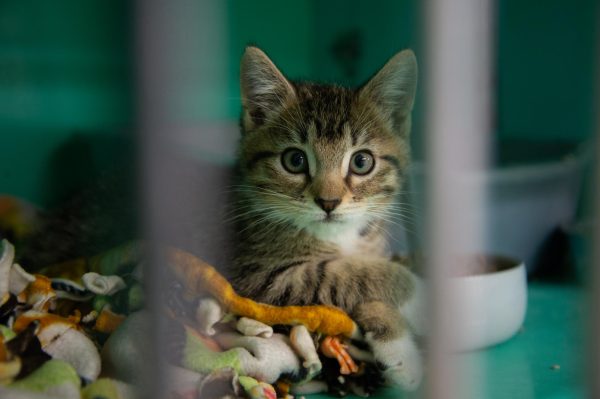Creating an open dialogue, honoring Hilinski
Bledsoe hopes bottle will increase conversation about mental health, change environment around it
OLIVER MCKENNA | DAILY EVERGREEN FILE
Candles, flowers and memorabilia were some of the items left by mourning community members at the foot of the Cougar statue during a memorial hosted by the Cougar Marching Band on Jan. 17, 2018, the day after Hilinski’s death.
May 10, 2018
It’s been nearly four months since WSU quarterback Tyler Hilinski died in his apartment of a self-inflicted gunshot wound to the head.
The Pullman community is still mourning the loss of Tyler. The No. 3 that graced his Cougar uniform can be seen on the rear windshields of cars and around the wrists of students, friends, family and alumni across the country.
Former WSU quarterback Drew Bledsoe said Tyler’s death affected him deeply because his son John, who is currently a redshirt freshman quarterback on the football team, was close with Tyler and saw him as a mentor.
“It hit me right between the eyes when we lost [Tyler] tragically,” Bledsoe said, “and there was no outward explanation for it.”
To honor Tyler and bring attention to mental health awareness, Bledsoe helped launch a special edition No. 3 Be Bottle on May 1 to raise money for The Hilinski’s Hope Foundation, which was created by Tyler’s parents Mark and Kym Hilinski to remove the stigma among student athletes.
Be Bottle is a company based out of Bend, Oregon that has created a double insulated stainless-steel bottle with a removable bottom that is aimed at reducing the use of plastic bottles.
Bledsoe is a partner in the company and said he hopes anyone that chooses to purchase the crimson coated bottle with Tyler’s No. 3 on the side becomes more willing to discuss mental health issues.
“We all go through tough times,” Bledsoe said, “and when that happens if you bury it and swallow it and don’t talk to anybody about it then it snowballs.”
All profits from the bottles will be donated to Hilinski’s Hope and Mark said when Bledsoe approached them with this idea he made sure not to take away from the mission of the foundation.
Mark said Bledsoe sent pictures to them throughout the process of making the bottle to get their approval. He said the goal with this bottle is to destigmatize the idea of mental illness.
“You wouldn’t be embarrassed if you got cancer,” Mark said, “you wouldn’t be embarrassed if you tore your ACL and you shouldn’t be embarrassed if your having a hard time processing something.”
Bledsoe shared a similar feeling and said athletes tend to feel uncomfortable opening up about things affecting them.
“As athletes, we go to the training room if we have a sprained ankle or if we get a cold we go to the doctor,” Bledsoe said, “but if we start to feel down or depressed … we don’t talk to anybody about that and that has to change.”
Bledsoe said he’s been encouraged recently by the willingness of several athletes to discuss their battles with mental illness, including former WSU quarterback Mark Rypien who attempted to commit suicide at one point in his life.
Creating an environment where athletes have the ability to release the thoughts they are holding in will help confront this issue, Bledsoe said. But he admitted we are at the beginning stages of doing so and he isn’t convinced that it’s being talked about enough.
Mark said Hilinski’s Hope is focused on creating this environment by using the donations they receive to provide funding, tools and resources to deal with mental health issues to schools and student athletes.
Mark said they are gathering information from mental health experts to create a model program at WSU that they hope to implement at other schools across the nation.
Hilinski’s Hope is currently working with the NCAA on a program called Step UP! that teaches students bystander intervention and how to be proactive in helping others.
Mark said if Tyler was here he would love being a part of something bigger than him.
Daniel Egeland, one of the co-founders of Be Bottle, said they have sold about 900 of the special edition bottles so far and are aiming for 3,000 by the end of Mental Health Awareness Month on May 31.
Egeland said they have talked about making the bottle a regularly available product, but a decision has yet to be made.
Mark said the support his family has received since Tyler’s death has been unbelievable and they hope to keep his memory alive by helping others through the foundation.
“It’s bittersweet,” Mark said. “You see all this outpouring of love for a kid that’s never going to be back on the field or back in the classroom or back with us.”
To find out more information about the limited edition bottle visit bebottles.com.


